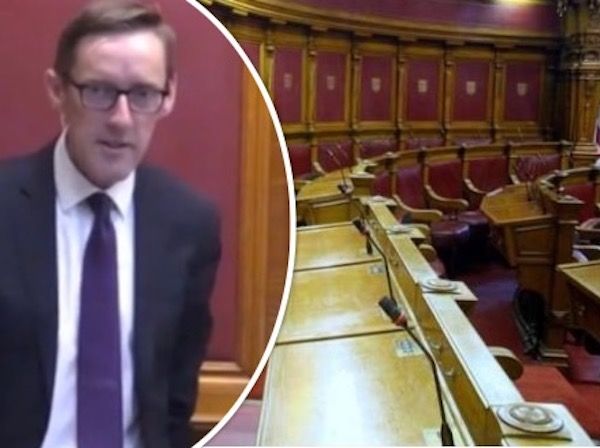

Ministers may no longer have to toe the ‘party’ line when they vote, if new proposals brought by the Chief Minister are approved.
The new legislation aims to scrap ‘collective responsibility’, a principle meaning that all members of the Council of Ministers must vote the same way, even if they strongly disagree with doing so.
Over the years, the rule has proven controversial. While originally intended as a practical way to ensure that Ministers reach a consensus view, many argue that collective responsibility is at odds with a system in which each States Member is elected on the basis of their own opinions.
The difficulty of the principle came to a head in the most recent Budget debate, when two of the ministerial team – the Minister for Economic Development and the Assistant Treasury Minister – chose to step out of the States Chamber and miss the crucial vote rather than go against their colleagues.
Following the debate, one of those Ministers – Senator Lyndon Farnham – blasted the principle as “curtailing proper economic debate” and called for it to be scrapped.
COLLECTIVE responsibility, the doctrine enshrined in the ministerial code which requires ministers to toe the official government line – is curtailing proper democratic debate and should be scrapped. https://t.co/HaC1jIROKs pic.twitter.com/QQbGxvEtIi
— Sen. Lyndon Farnham (@lyndonfarnham) December 2, 2017
That call appears not to have fallen on deaf ears. It’s now part of a raft of measures to be voted on in February that the Chief Minister hopes will clean up the ‘machinery of government’ and break down ‘silo’ ways of working, which were criticised in the damning £23million Care Inquiry report.
One change would change the legal position of Ministers, allowing them to sue and be sued as an aggregate, rather than individually. It would also allow them to hold property.
The new legislation would also give the Chief Minister longer to select his fellow Ministers – two days increases to five days – but the time between the General Election and the election of a Chief Minister by the Assembly reduced from 21 days to 19.
For the first time, the proposals would also see the Chief Executive of the States made accountable for the expenditure of public funds. That means that he or she would be required by law to ensure that taxpayers’ money is spent in an efficient way and ensuring that senior civil servants holding purse strings are equally responsible.

Pictured: New Chief Executive, Charlie Parker, would be held ultimately responsible for how public money is spent if the new laws are approved.
A report accompanying the proposed legislation explained that the changes were “clearly needed”, especially as the island prepares to face Brexit.
Senator Gorst described the changes as, “…essential to the creation of a modern and efficient public sector that works together as one government, delivering quality public services that offer value for money to the Islanders of today and tomorrow.”
The Minister for Treasury and Resources, Senator Alan Maclean, added: “We must have clear governance, transparent decision-making and stronger accountability at the top of the public service, all of which will be delivered by these important changes.”
Comments
Comments on this story express the views of the commentator only, not Bailiwick Publishing. We are unable to guarantee the accuracy of any of those comments.